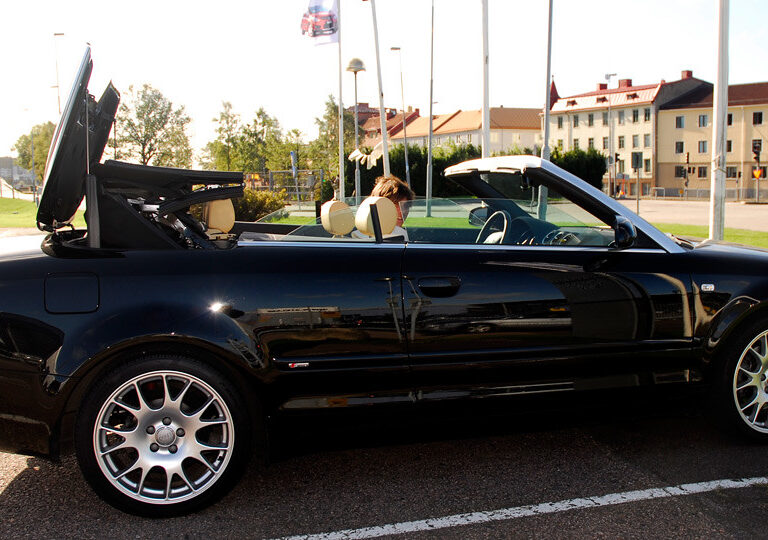There are eight main reasons why you cannot drive without auto insurance.
No one enjoys the prospect of shelling out money every month for car insurance. Why bother if you have been driving for years without ever been questioned for identification? It’s preferable to have something rather than not have it at all, even if you don’t need it, just as this holds true in many other areas of life. This is a truth that has been known for some time with regards to auto coverage.
Auto insurance is a need in the United States, but it may be costly and confusing to navigate. The majority of states in the United States mandate that drivers maintain continuous coverage under an active auto insurance policy, and these laws are the purview of individual state governments. In New Hampshire, if you can prove that you have adequate financial resources, you are exempt from buying auto insurance.
What does it mean for you that this is now the law of the land, and why?
1、The law says to do it (in all but two states)
Except for New Hampshire and Virginia, every state mandates that drivers have liability insurance. Many states have different minimum requirements for bodily injury and property damage liability insurance coverage that motorists must carry before they can legally operate a motor vehicle on their roads. Driving without insurance can result in a fine or perhaps the loss of your driver’s license.
Although neither collision nor comprehensive insurance are required by law in the state of California, you may be required to obtain them if you lease or borrow a vehicle. If you want to keep the money your car’s creditors have loaned you, you’ll need to get collision and comprehensive insurance.
Lenders need to recover a sizable portion of their investment if a leased vehicle is written off during the lease term. Creditors can turn to their insurance companies instead of you because it’s quite improbable that you have the cash on hand to cover the cost of fixing the car.
2、Car insurance covers you if you cause an accident
Auto insurance is essential by law for the same reason that we must wear seat belts: to safeguard us from unthinkable catastrophes.
Suppose you were involved in a car crash. You were trying to leave Chipotle at rush hour when you were struck by a speeding automobile traveling in the right lane. The blunder was made in good faith, but unfortunately, it’s the kind of thing that happens all the time.
There’s damage to both cars, and the second driver and her passenger both have neck injuries. Without auto insurance, the other motorist and her passenger may have filed a lawsuit against you for compensation of their injuries, lost wages, and vehicle repairs. If all of your debts add up to less than $100,000, it will be a miracle.
In the event of an accident caused by an uninsured motorist, it is crucial to remember that not only will the at-fault motorist be held financially responsible, but so will all other parties involved.
The accident victim is unable to get the money they need, and their debt continues to grow as interest is added (and pulverizes their credit score).
When a “ambulance chaser” increases the victim’s legal compensation under personal injury law, the at-fault driver is left waiting for the financial ax to fall (and their commission).
The government will have to spend tax money, use courtroom time, and pay public lawyers to handle the heated legal dispute that is sure to arise between the drivers. Also, if they damage public property (such as a fence or guardrail), they will be responsible for covering the repair costs out of their own pockets.
Legal professionals stand to gain the most when an accident occurs and no one is covered by insurance. Each party involved has lost tens of thousands of dollars, and at least one person’s life has been irreparably altered as a result.
All of this might have been avoided if the uninsured driver had paid just $1,000 for the minimum required insurance of 50/100/50 (covering damages of $50,000 per person, $100,000 per accident, and $50,000 for property damage).
So, governments make sure everyone has insurance.
3、To pay you for an accident that someone else caused
But, you should be grateful if the law required the individual who hit you to carry insurance.
If you are hit by an uninsured driver, it could be a long time before you see any of the money that is yours. You must cover costs such as maintenance and medical fees until the situation is resolved. The effects could be detrimental to your mental health and your credit.
In this sense, the term “liability coverage” is appropriate. The other driver should cover the cost of fixing your car and treating you. The term “property liability coverage” describes this variety of insurance (bodily injury liability coverage).
Said another way, governments don’t give a hoot if you damage your own property, which is why they don’t require collision or comprehensive insurance. They are only making sure that you have enough money in the bank to cover their bills for them (including theirs).
4、Car insurance can help protect you against the cost of repairs.
You should still think about getting collision and comprehensive coverage as part of your auto insurance policy, even if you own your car outright. Even though liability insurance is required by law, purchasing insurance for your own car is still highly recommended. Think about how your car could be impacted by a hailstorm. If your car is stolen or destroyed by something other than an accident, including falling objects or a fire, comprehensive insurance may be able to help pay for the repairs or the purchase of a replacement car.
Consider the following scenario: you were reckless and crashed into a mailbox, damaging your front bumper. If your car collides with something or another vehicle, and you’re at fault, collision insurance can help cover the costs of repairs.
You would have to pay for the repairs to your car out of pocket if you didn’t have collision or comprehensive coverage.
5、To keep your things safe
Without auto insurance, you will have to pay for any damages or injuries you cause out of your own pocket if you are involved in an accident. That could amount to a substantial sum of money depending on the specifics of the situation. It only takes one court order to have money seized from your assets. Drivers having significant assets to protect in the case of an accident are encouraged to acquire higher liability limits on their auto insurance policies.
6、Car insurance helps pay for damage caused by “acts of God.”
Having insurance is important not just after an accident, but also for the future. Hail, ice storms, wildfires, and other natural disasters can all do significant damage to your vehicle. Businesses have an obligation to make up for damages caused by “acts of God,” or natural disasters in which neither you nor the other driver played a role. Having this protection in place is crucial in the event that your car is broken into or stolen. Depending on the specifics of your policy, it may even cover items that are stolen from or destroyed while in transit.
7、Passengers are protected by car insurance
Your car insurance should cover the costs of treating anyone injured in a wreck you cause. As was just discussed, third-party liability insurance is there to safeguard those who suffered harm in the accident but were not at fault. Having sufficient insurance coverage will help pay for the medical bills of anyone wounded in an accident for which you are at fault. If you are not at fault in an accident in which passengers are involved, their medical bills should be paid for by your insurance or the insurance of the driver who caused the accident.
8、Car insurance lets people other than you drive your car
If you cause a car accident, your insurance company is responsible for covering the medical bills of those who were hurt in the crash. As was previously stated, the goal of third-party liability is to provide safety nets for all parties involved in an accident who are not the driver. Having sufficient insurance will help pay for the medical bills of those wounded in an accident for which you are at fault. If you are not at fault for an accident in which you and your passengers are involved, your insurance or the insurance of the driver who caused the accident should pay for their medical expenses.




